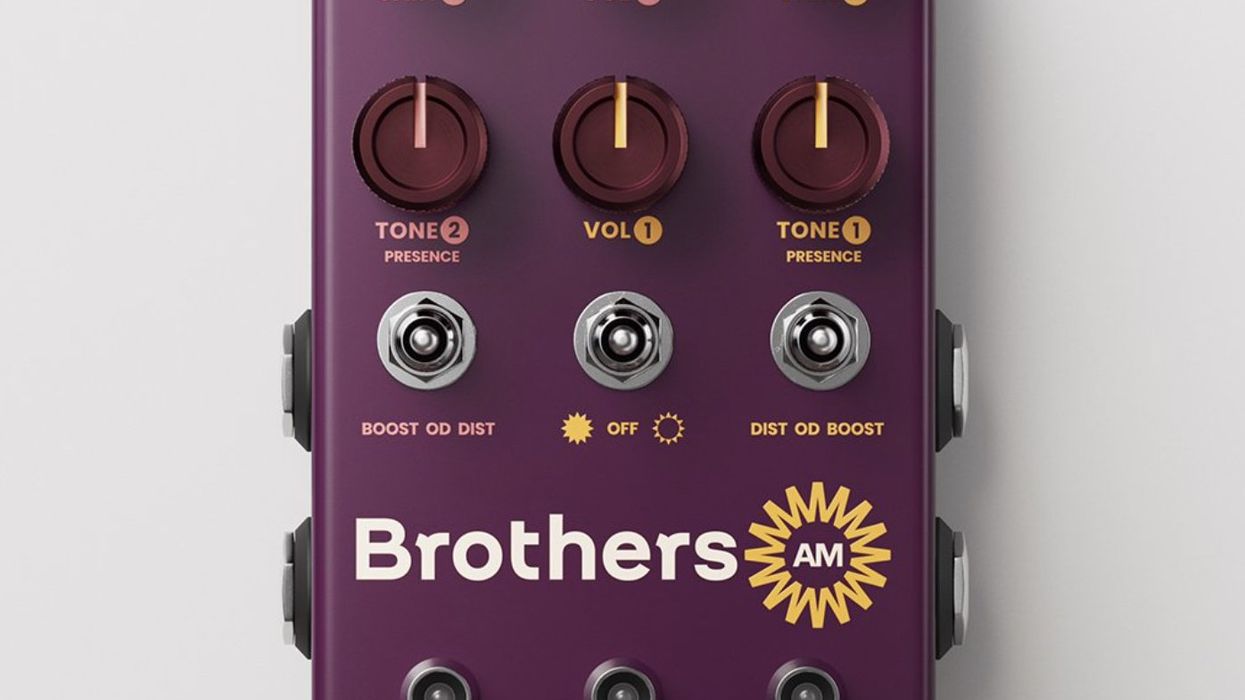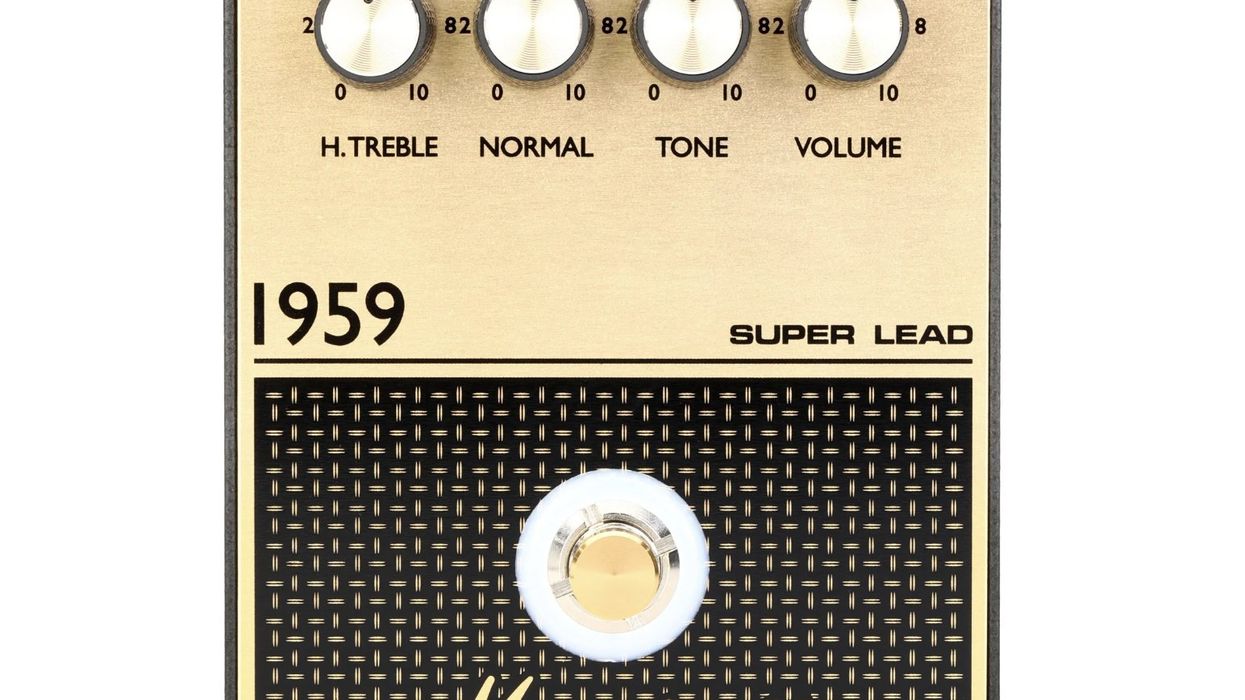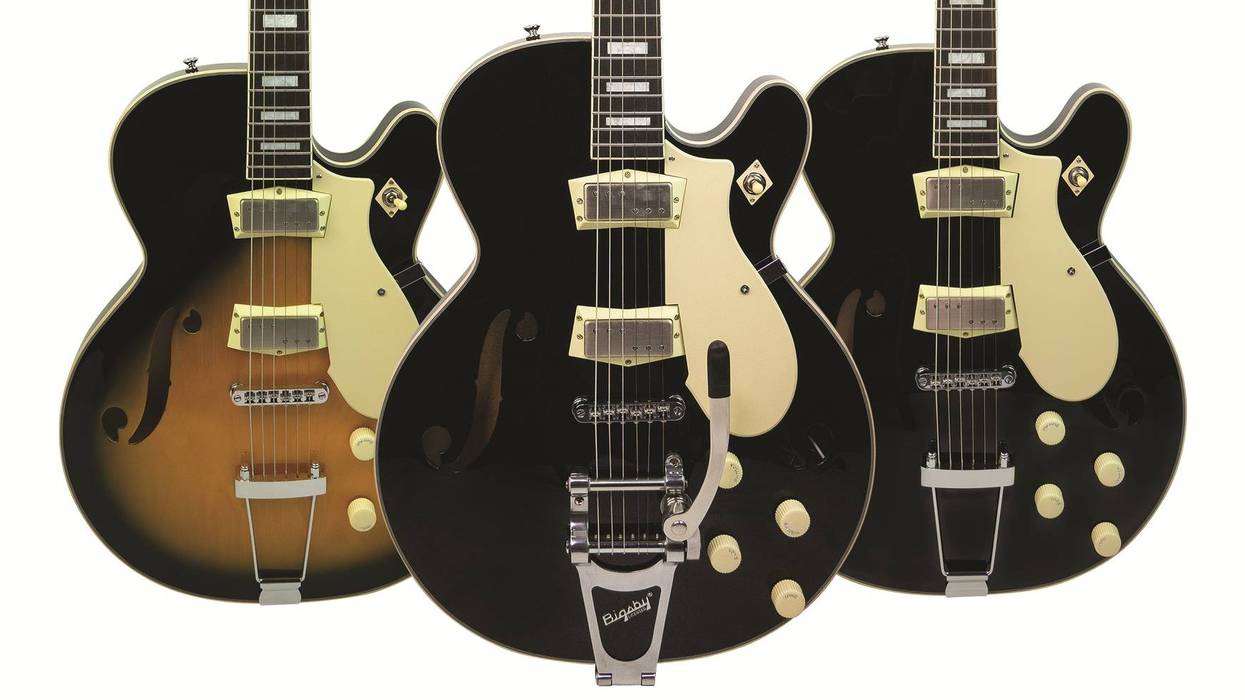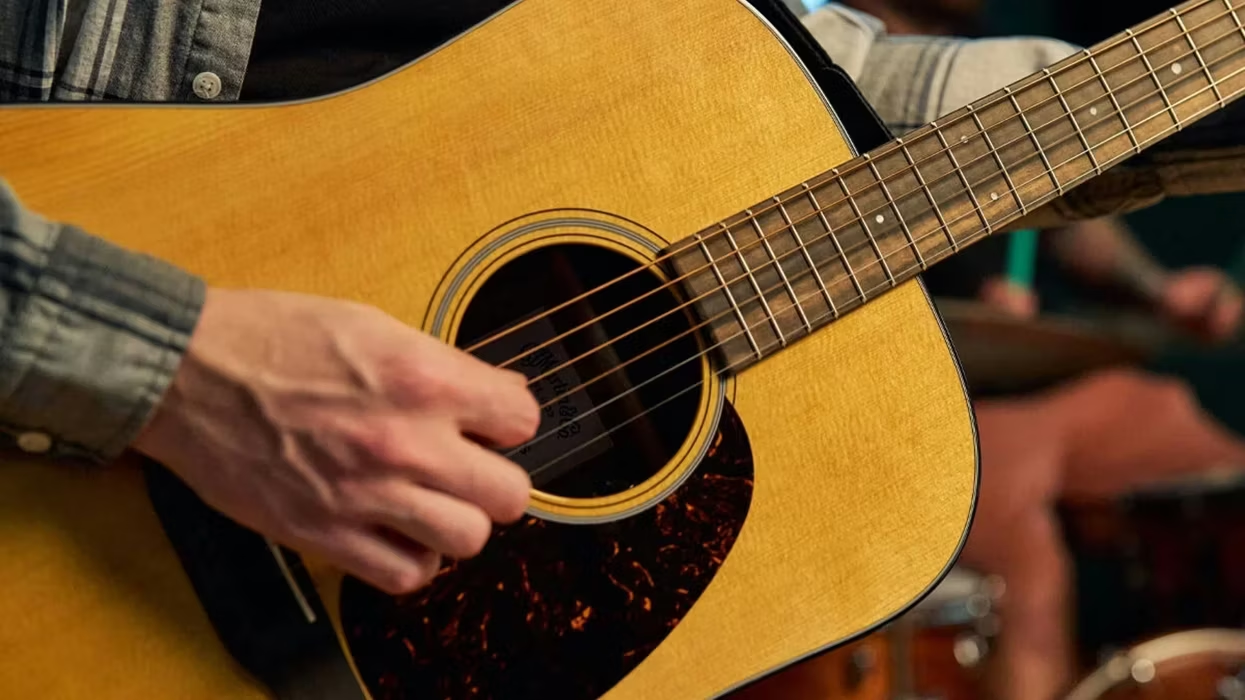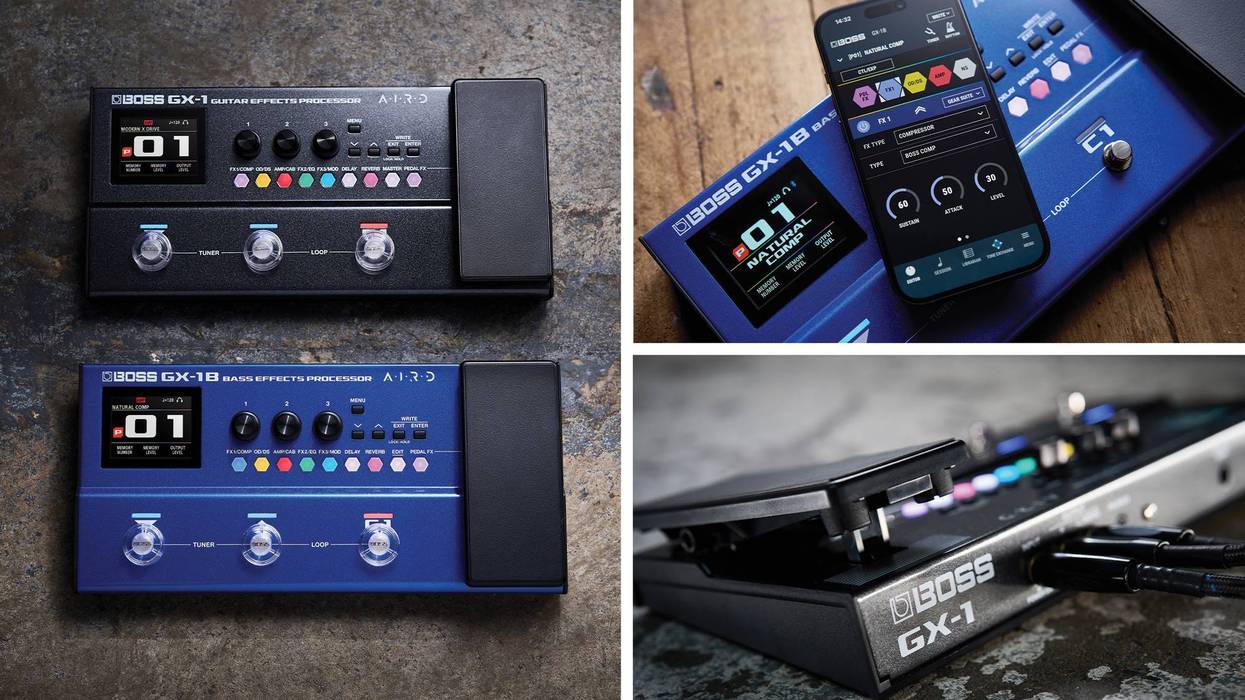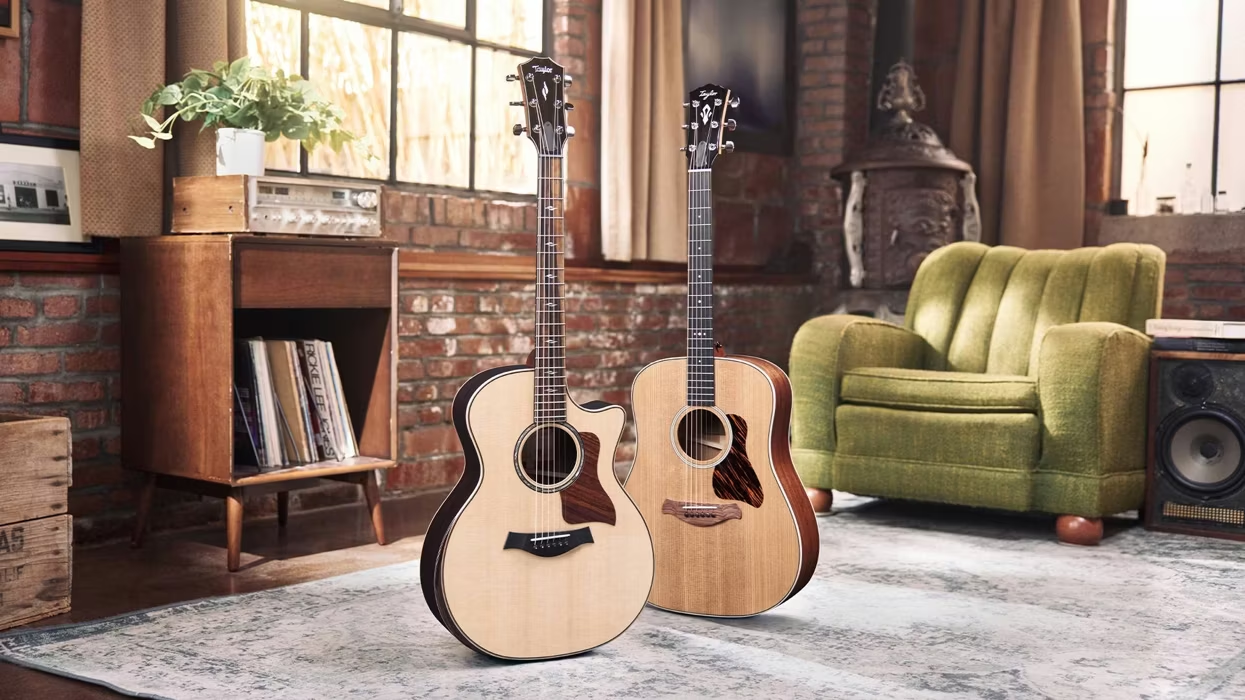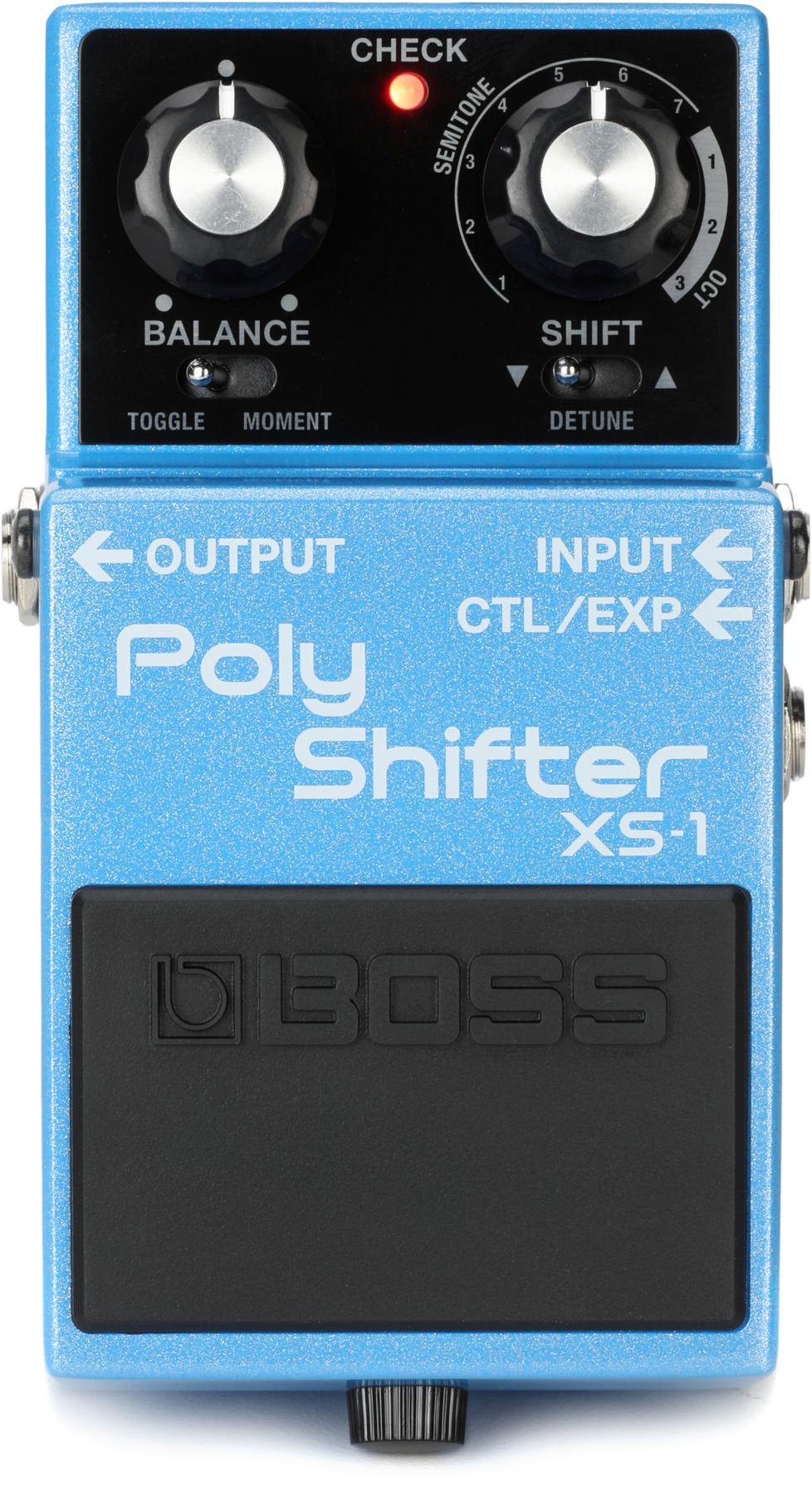Carolina Chocolate Drops
Leaving Eden
Nonesuch





 Foot-tapping ensues right out of the barn on the Carolina Chocolate Drops sophomore effort, as the thunder-picking melody of a 5-string banjo collides with a fiddle moan going rounds with a primitive yet wildly syncopated fife-and-drum beat in “Riro’s House.” It doesn’t take long to realize there’s something important about that galloping banjo (several models appear on the album: 5-string, 4-string, 5-string cello banjo, and a 5-string “gourd”), an instrument with roots in African-American traditional music, and more specifically, Africans in Colonial America. It’s been said the Carolina Chocolate Drops are among the only—if not the only—black traditional string band this side of, well, anywhere. It’s fair to say founding members Rhiannon Giddens and Dom Flemons have knocked hard on the doors of their past. For Leaving Eden, the follow-up to 2010’s Grammy winning Genuine Negro Jig, the group enlisted Nashville producer Buddy Miller (Emmylou Harris, Solomon Burke, Robert Plant), beat-boxer Adam Matta, Brooklyn guitarist/ banjoist Hubby Jenkins, and cellist Leyla McCalla to expand upon these firm roots.
Foot-tapping ensues right out of the barn on the Carolina Chocolate Drops sophomore effort, as the thunder-picking melody of a 5-string banjo collides with a fiddle moan going rounds with a primitive yet wildly syncopated fife-and-drum beat in “Riro’s House.” It doesn’t take long to realize there’s something important about that galloping banjo (several models appear on the album: 5-string, 4-string, 5-string cello banjo, and a 5-string “gourd”), an instrument with roots in African-American traditional music, and more specifically, Africans in Colonial America. It’s been said the Carolina Chocolate Drops are among the only—if not the only—black traditional string band this side of, well, anywhere. It’s fair to say founding members Rhiannon Giddens and Dom Flemons have knocked hard on the doors of their past. For Leaving Eden, the follow-up to 2010’s Grammy winning Genuine Negro Jig, the group enlisted Nashville producer Buddy Miller (Emmylou Harris, Solomon Burke, Robert Plant), beat-boxer Adam Matta, Brooklyn guitarist/ banjoist Hubby Jenkins, and cellist Leyla McCalla to expand upon these firm roots.
The Piedmont multi-instrumentalists may be of a vanishing breed who call and respond to their ancestors, arranging classics like “Briggs’ Corn Shucking Jig,” dating as far back as 1855. But the CCD spirit reflected in today’s world is unmistakable in original tunes like “Country Girl”—written by Giddens as an ode to her North Carolina stomping grounds—or by reinventing classic selections of their string-playing mentors. The group’s self-proclaimed “modern take on traditional sound” is eclectic and exciting: Each arrangement is nuanced and interesting vocally, instrumentally and lyrically—from the a cappella chain-gang vibe of “Read ’em John,” to the unique use of jugs, quills and bones. Vocals are split diversely between the magnificent, bluesy songbird Giddens and her spitfire counterpart Flemons, not to mention Matta’s instrumental bass vocal talents.
Casual listeners may not discern that the underlying hip-hoppin’ bass line in “Ruby (Are You Mad at Your Man?)” is a human voice— that’s right, Matta lays down the low end with his voice on several tracks. Guitar purists might notice audible rhythm and acoustic fingerpicking here and there, but its absence is the true indication to the heart of this sound. The banjo is to this style of roots music what the electric guitar is to modern rock. Fiddle and mandolin paired with acoustic guitar are power-string combos in most bluegrass and folk groups, but the Carolina Chocolate Drops make a powerful case for straight-up banjo with anything.
The Drops are stylists, but rare are those who can simultaneously hold up a genre while innovating within it. This is where the “old meets new” magic happens and the hootenanny spills into the town square, revealing Southern string music for then and now, oozing with soul and interpreted authentically right down to the last drop.
Must-hear tracks: “Riro’s House,” “Country Girl”
Leaving Eden
Nonesuch
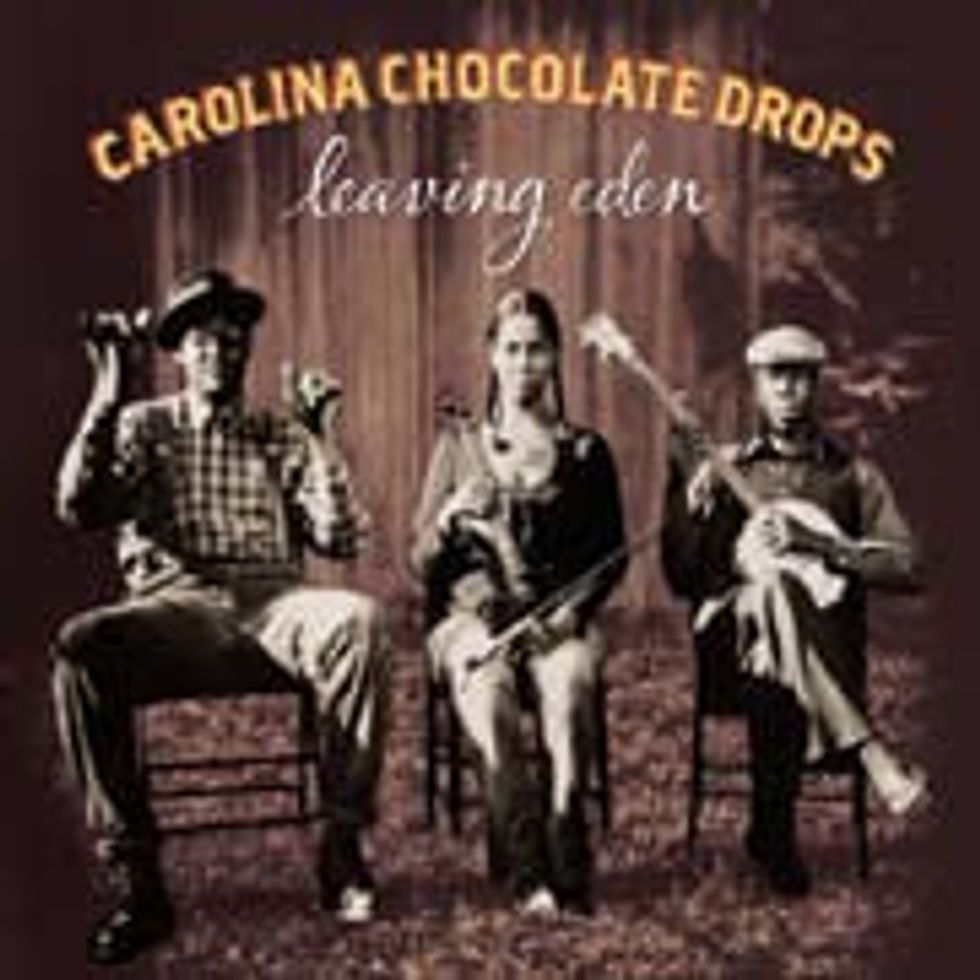 Foot-tapping ensues right out of the barn on the Carolina Chocolate Drops sophomore effort, as the thunder-picking melody of a 5-string banjo collides with a fiddle moan going rounds with a primitive yet wildly syncopated fife-and-drum beat in “Riro’s House.” It doesn’t take long to realize there’s something important about that galloping banjo (several models appear on the album: 5-string, 4-string, 5-string cello banjo, and a 5-string “gourd”), an instrument with roots in African-American traditional music, and more specifically, Africans in Colonial America. It’s been said the Carolina Chocolate Drops are among the only—if not the only—black traditional string band this side of, well, anywhere. It’s fair to say founding members Rhiannon Giddens and Dom Flemons have knocked hard on the doors of their past. For Leaving Eden, the follow-up to 2010’s Grammy winning Genuine Negro Jig, the group enlisted Nashville producer Buddy Miller (Emmylou Harris, Solomon Burke, Robert Plant), beat-boxer Adam Matta, Brooklyn guitarist/ banjoist Hubby Jenkins, and cellist Leyla McCalla to expand upon these firm roots.
Foot-tapping ensues right out of the barn on the Carolina Chocolate Drops sophomore effort, as the thunder-picking melody of a 5-string banjo collides with a fiddle moan going rounds with a primitive yet wildly syncopated fife-and-drum beat in “Riro’s House.” It doesn’t take long to realize there’s something important about that galloping banjo (several models appear on the album: 5-string, 4-string, 5-string cello banjo, and a 5-string “gourd”), an instrument with roots in African-American traditional music, and more specifically, Africans in Colonial America. It’s been said the Carolina Chocolate Drops are among the only—if not the only—black traditional string band this side of, well, anywhere. It’s fair to say founding members Rhiannon Giddens and Dom Flemons have knocked hard on the doors of their past. For Leaving Eden, the follow-up to 2010’s Grammy winning Genuine Negro Jig, the group enlisted Nashville producer Buddy Miller (Emmylou Harris, Solomon Burke, Robert Plant), beat-boxer Adam Matta, Brooklyn guitarist/ banjoist Hubby Jenkins, and cellist Leyla McCalla to expand upon these firm roots.The Piedmont multi-instrumentalists may be of a vanishing breed who call and respond to their ancestors, arranging classics like “Briggs’ Corn Shucking Jig,” dating as far back as 1855. But the CCD spirit reflected in today’s world is unmistakable in original tunes like “Country Girl”—written by Giddens as an ode to her North Carolina stomping grounds—or by reinventing classic selections of their string-playing mentors. The group’s self-proclaimed “modern take on traditional sound” is eclectic and exciting: Each arrangement is nuanced and interesting vocally, instrumentally and lyrically—from the a cappella chain-gang vibe of “Read ’em John,” to the unique use of jugs, quills and bones. Vocals are split diversely between the magnificent, bluesy songbird Giddens and her spitfire counterpart Flemons, not to mention Matta’s instrumental bass vocal talents.
Casual listeners may not discern that the underlying hip-hoppin’ bass line in “Ruby (Are You Mad at Your Man?)” is a human voice— that’s right, Matta lays down the low end with his voice on several tracks. Guitar purists might notice audible rhythm and acoustic fingerpicking here and there, but its absence is the true indication to the heart of this sound. The banjo is to this style of roots music what the electric guitar is to modern rock. Fiddle and mandolin paired with acoustic guitar are power-string combos in most bluegrass and folk groups, but the Carolina Chocolate Drops make a powerful case for straight-up banjo with anything.
The Drops are stylists, but rare are those who can simultaneously hold up a genre while innovating within it. This is where the “old meets new” magic happens and the hootenanny spills into the town square, revealing Southern string music for then and now, oozing with soul and interpreted authentically right down to the last drop.
Must-hear tracks: “Riro’s House,” “Country Girl”



